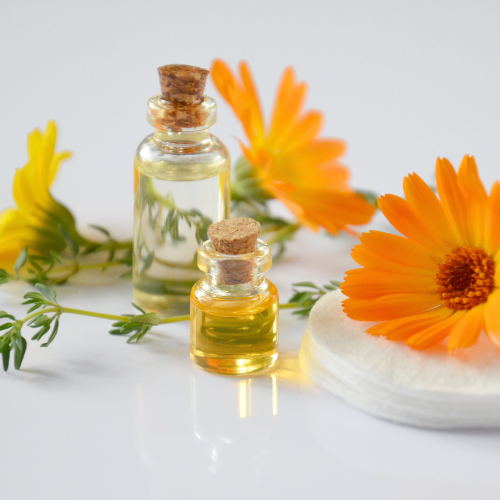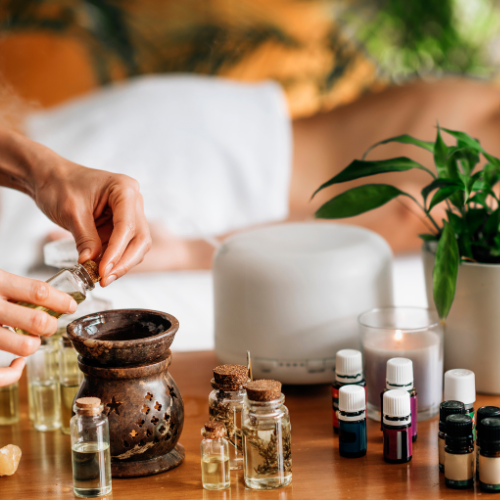
Neroli oil, extracted from the blossoms of the bitter orange tree (Citrus aurantium), is an essential oil that has been cherished for centuries. Renowned for its delicate floral aroma and therapeutic properties, neroli oil plays a significant role in traditional medicine across various cultures. From ancient practices to modern holistic healing, neroli oil has been used to address physical ailments, emotional imbalances, and spiritual needs.
This article explores the rich history of neroli oil, its applications in traditional medicine, and its continued relevance in contemporary holistic health practices.
Origins of Neroli Oil in Traditional Medicine
The history of neroli oil can be traced back to ancient civilizations where the bitter orange tree was revered for its healing properties. Native to the Mediterranean region and parts of Asia, the tree provided a wealth of medicinal benefits through its fruit, peel, leaves, and blossoms.
- Ancient Egypt: Egyptians valued neroli oil for its role in rituals and embalming processes. Its uplifting scent was used to promote emotional balance and spiritual connection.
- Traditional Chinese Medicine (TCM): In TCM, neroli oil was employed to regulate qi (life force energy), improve digestion, and alleviate stress.
- Ayurveda: Indian Ayurvedic practitioners integrated neroli oil into their treatments for its cooling and calming effects, using it to balance the doshas and treat emotional distress.
These early uses laid the foundation for neroli oil’s incorporation into traditional medicinal systems worldwide.
Key Properties of Neroli Oil in Traditional Medicine
Neroli oil’s therapeutic properties are attributed to its rich chemical composition, which includes linalool, limonene, and nerolidol. These compounds provide the neroli essential oil with a range of medicinal benefits, including:
- Calming and Stress-Relieving: Neroli essential oil’s sedative properties make it a powerful remedy for anxiety, insomnia, and emotional imbalances.
- Antimicrobial and Antiseptic: Neroli essential oil's ability to combat bacteria and fungi made it valuable for treating wounds and infections.
- Anti-inflammatory: Neroli oil’s anti-inflammatory effects were used to soothe skin conditions and reduce pain.
- Digestive Support: It was employed to alleviate digestive issues like bloating, nausea, and indigestion.
The Role of Neroli Oil in Specific Traditional Medicine Practices
Middle Eastern Medicine
In Middle Eastern traditional medicine, neroli oil has been used for centuries to address emotional and physical ailments.
- Mood Enhancer: Neroli essential oil’s uplifting scent was believed to vanish negative thoughts and promote a sense of well-being.
- Skin Care: It was used to treat dry skin, reduce acne, and fade scars.
- Digestive Tonic: Infusions of neroli blossoms were consumed to improve digestion and relieve bloating.
European Herbalism
In European herbal traditions, neroli oil became a symbol of luxury and wellness.
- Nervous System Support: It was used to calm nerves and treat symptoms of hysteria and nervousness.
- Perfumed Remedies: Aromatic waters infused with neroli oil were prescribed to alleviate headaches and tension.
- Fever Reduction: It was applied typically to cool the body and reduce fevers.
Role of Neroli Oil in Ayurveda
In Ayurvedic medicine, neroli oil’s cooling nature made it a remedy for imbalances, which are associated with heat, inflammation, and irritability.
- Stress Relief: It was incorporated into massages and aromatherapy to calm the mind and body.
- Skin Healing: The oil was used to treat inflammatory skin conditions and promote youthful skin.
- Detoxification: Neroli oil was believed to help cleanse toxins from the body, supporting overall health.
Traditional Chinese Medicine
In TCM, neroli oil was regarded as a harmonizer of emotional and physical energies.
- Qi Regulation: It was used to promote the smooth flow of qi, particularly in cases of stagnation caused by stress or grief.
- Digestive Health: The oil was applied to the abdomen to ease indigestion and promote appetite.
- Sleep Aid: Its calming properties were used to address insomnia and restless sleep.
Applications of Neroli Oil in Traditional Medicine
Role of Neroli Oil in Emotional and Mental Health
Neroli oil has been a cornerstone of traditional remedies for emotional well-being. Its calming scent is effective in reducing stress, anxiety, and symptoms of depression.
- Aromatherapy:Ancient practitioners diffused neroli oil in homes and temples to promote relaxation and mental clarity.
- Massage Therapy: The oil was combined with carrier oils and used in massages to release tension and encourage a peaceful state of mind.

Importance of Neroli Oil in Women’s Health
Traditional medicine recognized neroli oil’s benefits for hormonal and reproductive health.
- Menstrual Relief: The oil was used to alleviate cramps and mood swings associated with menstruation.
- Postpartum Care: It was applied to soothe emotional imbalances and physical discomfort after childbirth.
Neroli Oil in Skincare and Wound Healing
Neroli oil’s antimicrobial and regenerative properties made it a key ingredient in traditional skin remedies.
- Scar Treatment: It was applied to fade scars and stretch marks.
- Wound Care: The oil was used to prevent infections and speed up wound healing.
- Anti-Aging: Ancient beauty regimens included neroli oil to maintain youthful and radiant skin.
Neroli Oil Supports Respiration
Inhalation of neroli oil was a common remedy for respiratory conditions such as colds and congestion.
- Steam Inhalation: Adding neroli oil to hot water and inhaling the steam was believed to clear sinuses and ease breathing.
- Cough Relief: Its soothing properties helped reduce coughing and throat irritation.
Neroli Oil for Digestive Health
Neroli oil was a trusted remedy for digestive complaints.
- Appetite Stimulation: It was used to encourage eating in cases of poor appetite.
- Bloating and Gas: The oil was massaged onto the abdomen to relieve bloating and flatulence.
Modern Validation of Traditional Uses
Scientific studies have begun to validate many of the traditional applications of neroli oil. Research highlights include:
- Antimicrobial Activity: The oil’s ability to inhibit the growth of bacteria and fungi supports its use in wound care and skin infections.
- Anti-Inflammatory Properties: Research has demonstrated neroli oil’s effectiveness in reducing inflammation, validating its traditional use for pain relief and skin conditions.
Integrating Neroli Oil into Contemporary Wellness
The continued use of neroli oil in holistic health practices underscores its timeless appeal. Today, it is widely available in the form of essential oil, hydrosols, and infused skincare products. Here’s how you can incorporate neroli oil into your modern wellness routine:
- Aromatherapy: Diffuse neroli oil to create a calming ambiance in your home or workspace.
- Bath Rituals: Add a few drops to a warm bath for relaxation and stress relief.
Conclusion
Neroli oil’s role in traditional medicine highlights its versatility and enduring significance. From its use in emotional healing and skincare to its application in digestive and respiratory health, this fragrant oil has been a trusted remedy across cultures and centuries.
The blend of historical wisdom and modern scientific validation makes neroli oil a valuable addition to any natural wellness practice. Whether you’re looking to reduce stress, improve skin health, or simply enjoy its exquisite aroma, neroli oil offers a wealth of benefits rooted in tradition and enhanced by modern understanding.
Recent Posts
- BMV Fragrances to Participate in Two Premier Global Exhibitions : SIMPPAR & Beautyworld 2025
- How to Use Resinoid Vetiver in Agarbattis and Burning Industry?
- How to Blend Geranium Egyptian NNO with Citrus, Herbal and Woody Notes Effectively?
- Resinoid Treemoss Super: Unveiling the Mossy-Woody Signature of Reconstituted Aromatics
- Why Rose NNO+ is a Go-To Ingredient in Reconstitution Fragrance Blends?
- Exploring Resinoid Sandal AG: The Woody-Sweet Essence of Incense and Burning Applications
- Saffron Extract: Blending Iranian Richness and Indian Precision
Copyright @ 2025 | BMV Fragrances Private Limited | All Rights Reserved
Website Design & Digital Marketing by webmasterindia.

